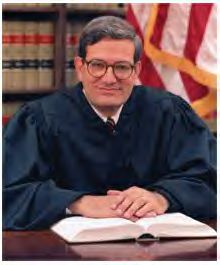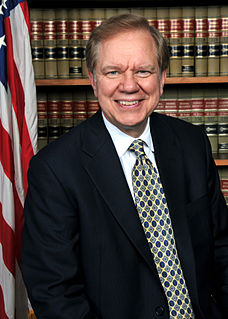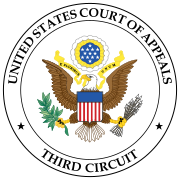
The Fourteenth Amendment to the United States Constitution was adopted on July 9, 1868, as one of the Reconstruction Amendments. Often considered as one of the most consequential amendments, it addresses citizenship rights and equal protection under the law and was proposed in response to issues related to former slaves following the American Civil War. The amendment was bitterly contested, particularly by the states of the defeated Confederacy, which were forced to ratify it in order to regain representation in Congress. The amendment, particularly its first section, is one of the most litigated parts of the Constitution, forming the basis for landmark Supreme Court decisions such as Brown v. Board of Education (1954) regarding racial segregation, Roe v. Wade (1973) regarding abortion, Bush v. Gore (2000) regarding the 2000 presidential election, and Obergefell v. Hodges (2015) regarding same-sex marriage. The amendment limits the actions of all state and local officials, and also those acting on behalf of such officials.
United States v. Morrison, 529 U.S. 598 (2000), is a U.S. Supreme Court decision that held that parts of the Violence Against Women Act of 1994 were unconstitutional because they exceeded the powers granted to the US Congress under the Commerce Clause and the Fourteenth Amendment's Equal Protection Clause. Along with United States v. Lopez (1995), it was part of a series of Rehnquist Court cases that limited Congress's powers under the Commerce Clause.
Bolling v. Sharpe, 347 U.S. 497 (1954), is a landmark United States Supreme Court case in which the Court held that the Constitution prohibits segregated public schools in the District of Columbia. Originally argued on December 10–11, 1952, a year before Brown v. Board of Education, Bolling was reargued on December 8–9, 1953, and was unanimously decided on May 17, 1954, the same day as Brown. The Bolling decision was supplemented in 1955 with the second Brown opinion, which ordered desegregation "with all deliberate speed". In Bolling, the Court did not address school desegregation in the context of the Fourteenth Amendment's Equal Protection Clause, which applies only to the states, but rather held that school segregation was unconstitutional under the Due Process Clause of the Fifth Amendment to the United States Constitution. The Court observed that the Fifth Amendment to the United States Constitution lacked an Equal Protection Clause, as in the Fourteenth Amendment to the United States Constitution. However, the Court held that the concepts of equal protection and due process are not mutually exclusive, establishing the reverse incorporation doctrine.
Student rights are those rights, such as civil, constitutional, contractual and consumer rights, which regulate student rights and freedoms and allow students to make use of their educational investment. These include such things as the right to free speech and association, to due process, equality, autonomy, safety and privacy, and accountability in contracts and advertising, which regulate the treatment of students by teachers and administrators. There is very little scholarship about student rights throughout the world. In general most countries have some kind of student rights enshrined in their laws and proceduralized by their court precedents. Some countries, like Romania, in the European Union, have comprehensive student bills of rights, which outline both rights and how they are to be proceduralized. Most countries, however, like the United States and Canada, do not have a cohesive bill of rights and students must use the courts to determine how rights precedents in one area apply in their own jurisdictions.
Board of Trustees of the University of Alabama v. Garrett, 531 U.S. 356 (2001), was a United States Supreme Court case about Congress's enforcement powers under the Fourteenth Amendment to the United States Constitution. The Supreme Court decided that Title I of the Americans with Disabilities Act was unconstitutional, insofar as it allowed states to be sued by private citizens for money damages.
Kramer v. Union Free School District No. 15, 395 U.S. 621 (1969), was a United States Supreme Court decision in which the Court struck down a longstanding New York State statute requiring that to be eligible to vote in certain school district elections, an individual must either own or rent taxable real property within the school district, be the spouse of a property owner or lessor, or be the parent or guardian of a child attending a public school in the district. By a 5-to-3 vote, the court held that these voting requirements violated the Equal Protection Clause of the Fourteenth Amendment to the United States Constitution.
The Equal Protection Clause is part of the first section of the Fourteenth Amendment to the United States Constitution. The clause, which took effect in 1868, provides "nor shall any State ... deny to any person within its jurisdiction the equal protection of the laws". It mandates that individuals in similar situations be treated equally by the law.
Incorporation, in United States law, is the doctrine by which portions of the Bill of Rights have been made applicable to the states. When the Bill of Rights was ratified, the courts held that its protections extended only to the actions of the federal government and that the Bill of Rights did not place limitations on the authority of the state and local governments. However, the post-Civil War era, beginning in 1865 with the Thirteenth Amendment, which declared the abolition of slavery, gave rise to the incorporation of other amendments, applying more rights to the states and people over time. Gradually, various portions of the Bill of Rights have been held to be applicable to the state and local governments by incorporation through the Fourteenth Amendment in 1868 and the Fifteenth Amendment in 1870.

Arakaki v. State of Hawai'i, 314 F.3d 1091, was a lawsuit challenging the requirement that candidates for election to the Office of Hawaiian Affairs board of trustees be Native Hawaiians.
Harper v. Virginia State Board of Elections, 383 U.S. 663 (1966), was a case in which the U.S. Supreme Court found that Virginia's poll tax was unconstitutional under the equal protection clause of the 14th Amendment. In the late 19th and early 20th centuries, eleven southern states established poll taxes as part of their disenfranchisement of most blacks and many poor whites. The Twenty-fourth Amendment to the United States Constitution (1964) prohibited poll taxes in federal elections; five states continued to require poll taxes for voters in state elections. By this ruling, the Supreme Court banned the use of poll taxes in state elections.

José Alberto Cabranes is a United States circuit judge of the United States Court of Appeals for the Second Circuit and a former presiding judge of the United States Foreign Intelligence Surveillance Court of Review ("FISCR"). Formerly a practicing lawyer, government official, and law teacher, he was the first Puerto Rican appointed to a federal judgeship in the continental United States (1979).
The right to a Free Appropriate Public Education (FAPE) is an educational entitlement of all students in the United States who are identified as having a disability, guaranteed by the Rehabilitation Act of 1973 and the Individuals with Disabilities Education Act (IDEA).
Kimel v. Florida Board of Regents, 528 U.S. 62 (2000), was a US Supreme Court case that determined that the US Congress's enforcement powers under the Fourteenth Amendment to the US Constitution did not extend to the abrogation of state sovereign immunity under the Eleventh Amendment over complaints of discrimination that is rationally based on age.

David Brookman Smith, known professionally as D. Brooks Smith, is a Senior United States Circuit Judge of the United States Court of Appeals for the Third Circuit. He was previously Chief Judge of both the United States Court of Appeals for the Third Circuit and the United States District Court for the Western District of Pennsylvania, and is the only judge in the history of the Third Circuit to have served as both a chief district judge and chief of the Court of Appeals. Beginning January 2022, Smith will begin to serve as Penn State Law's new jurist in residence.

Thomas Lee Ambro is a United States Circuit Judge of the United States Court of Appeals for the Third Circuit. He began his judicial service in 2000.

The Fifth Amendment (Amendment V) to the United States Constitution addresses criminal procedure and other aspects of the Constitution. It was ratified, along with nine other articles, in 1791 as part of the Bill of Rights. The Fifth Amendment applies to every level of the government, including the federal, state, and local levels, in regard to a US citizen or resident of the US. The Supreme Court furthered the protections of this amendment through the Due Process Clause of the Fourteenth Amendment.
Williams v. Rhodes, 393 U.S. 23 (1968), is a decision by the United States Supreme Court which held that Ohio had violated the equal protection rights under the Fourteenth Amendment of two political parties by refusing to print their candidates' names on the ballot.

Trinsey v. Pennsylvania, 941 F.2d 224, was a case decided by the United States Court of Appeals for the Third Circuit that confirmed the validity of special elections held without a primary under the Fourteenth and Seventeenth Amendments to the United States Constitution. The case came about due to the death of H. John Heinz III, one of the U.S. senators from Pennsylvania, in a plane crash on April 4, 1991. Under the Seventeenth Amendment, state legislatures may give the Governor the power to appoint officials to fill temporarily vacant Senate seats until a special election can be held, and Pennsylvanian law contained a statute executing this and requiring no primaries for the special election. Instead, both the Democrats and Republicans would each internally select their candidates. John S. Trinsey Jr., a voter and potential candidate, asked the United States District Court for the Eastern District of Pennsylvania to declare the statute unconstitutional as a violation on the Fourteenth and Seventeenth amendments, because the lack of a primary removed his right to properly vote for candidates and delegated that power to political parties.
The Penn State Board of Trustees is the 38-member governing body for The Pennsylvania State University. Its members include the university's president, the Governor of the Commonwealth, and the state Secretaries of Agriculture, Conservation and Natural Resources, and Education, as well as a representative for the Governor. The other members include six trustees appointed by the Governor, nine elected by alumni, six elected by Pennsylvania agricultural societies, six by a board representing business and industry enterprises, 3 at-large, 1 student, and 1 academic trustee. Undergraduate students do not elect any trustees; the court case Benner v. Oswald ruled that the Equal Protection Clause of the Fourteenth Amendment did not require the undergraduate students be allowed to participate in the selection of trustees.






